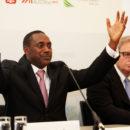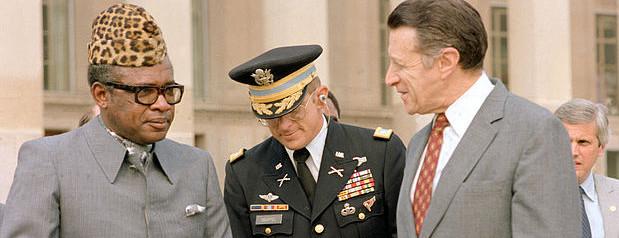Ghana: election climate heats up less than a month before polls – By Kissy Agyeman-Togobo

There’s just 25 days to go before Ghana holds its hotly anticipated presidential and legislative elections, the nation’s sixth round of multi-party elections. The political environment could not be more polarised. Billboards are adorned with party colours of the main contenders and television and radio programmes are not only dominated by political debates, but campaign adverts air every few minutes. Street corners, taxis, bus stations, food stalls, places of work and worship have all become platforms for debate, especially in the midst of the series of IEA presidential debates, aired live on all the major television and radio stations.
As a mark of Ghana’s maturing democracy, the 8 year-old daughter of a taxi driver has become an iconic figure in the election period, being dubbed a “peace ambassador” for her probing questions at the recent IEA debate, forcing accountability on the polity.
The maturity with which Ghana’s democracy is often labelled, is being put to the test on a daily basis. Claims (unsubstantiated) by the National Democratic Congress (NDC) that the main opposition New Patriotic Party (NPP) has been importing machetes to destabilise the polls are unnerving. This is especially true when a few months ago the NPP MP Kennedy Agyapong made inflammatory statements calling for the Ashanti ethnic group to rise up against the Ewes (who hail from the Volta Region).
In recent days, the “Ahobreasehene” or “Humble King” title – bestowed on President John Dramani Mahama by some of his supporters – seems to be losing its edge. During a rally to the Northern Region (from where he hails), Mahama played the ethnic card by imploring the crowds not to lose this golden opportunity of having their “own as president”. Paradoxically, Mahama has also been calling for cohesiveness, saying that Ghanaians should ignore the beating of war drums and tribal politics.
But the feeling of “˜them and us’ is not just ethnic. The gap between the haves and the have-nots became all the more pronounced in recent days when the airwaves and newspapers broke the story of a staggering increase in the salaries of Ministers and MPs. In a closed-door session on 31 October, parliament approved a report by the Presidential Committee on Emoluments and Salaries of the Executive. The approval would see the president’s monthly salary increase from GHC 8,331 (US$4400) to GHC 12,000 (US$6,400), the Vice President’s would increase to GHC10,500 and that of Ministers of State and Deputies would be between GHC 8,000-9,000. This approval follows the presidential endorsement of salary increases for the legislature, which would see MPs taking home a monthly wage of GHC 7200. Meanwhile, per capita GDP is around US$1,600.
For the masses, the timing could not be more inappropriate. A recent load-shedding exercise has seen some areas of Ghana without electricity on a near daily basis for up to 12 hours at a time, disrupting home-life and businesses to the extent that the president was forced to give an apology on a recent tour of Wa in the Upper West region. The average Ghanaian is struggling to stay afloat with rising food and petrol prices, while gas shortages across the nation are also testing the patience of the masses, as gas is often seen as the cheaper alternative to petrol for cars and is commonly used for cooking. In addition, Ghana has not been receiving supplies through the West Africa Gas Pipeline from Nigeria since August because of a break in the pipeline. Mahama’s comment at the IEA presidential debate last week that this rupture was “an act of God” has done little to placate those currently suffering from the shortage.
In an interview with the Daily Graphic, NPP MP Dr Nyaho Tamakloe was of the view that the salary increments are outrageous, particularly in view of the fact that costs such as accommodation, electricity, water and travelling allowances were already taken care of by the state. Indeed, the story emerged at a time when Mahama was promising Northern constituents that his future government would be resolved to reducing the poverty gap between the North and the South of the country.
No doubt this salary increase has been incendiary to the unions, which are already frustrated by the delays in payments to public sector workers under the Single Spine Pay Policy (SSPP). The Local Government Workers Union (LGWU) is threatening industrial action over the delays in premium payments by the Fair Wages and Salaries Commission.
Visibly moved by the level of vitriol that the proposed salary adjustments have engendered – not least of all because the payments would also be back-dated to the start of the NDC government’s mandate in 2009 – the president has now called for a review of the recommendations made to parliament. Only time will tell if this temporary “claw-back” will be enough to win over potential supporters for the president in time for the 7 December poll.
Kissy Agyeman-Togobo is Partner at Songhai Advisory LLP.






